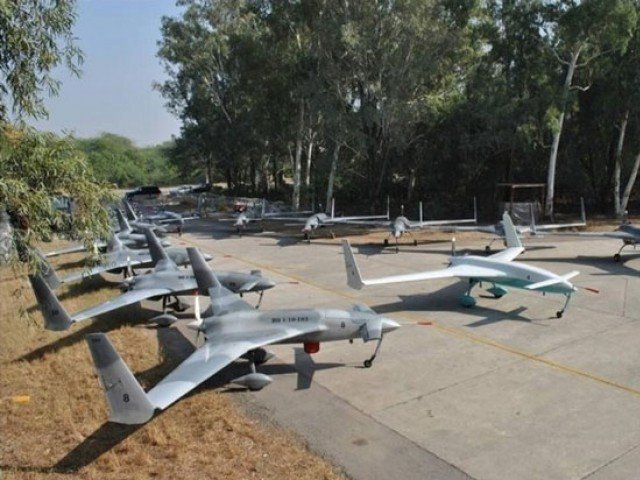
Policy of distinguishing between ‘Good’ Taliban and ‘Bad’ Taliban is well known. This is denied by the state, of course, but actions speak louder than words and based on the actions of the state apparatus, many believe that, in the words of The Nation, “The government tells us there is no distinction between good and bad terrorists – it lies.” Now, another group has apparently been divided into ‘Good’ and ‘Bad’ camps: Drones.
Powers that be have used drones to whip up anti-American sentiment since long. When American drones were targeting jihadi militants, anti-American street protests were taken out across Pakistan by extremist religious groups and ‘retired’ ISI officers. Imran Khan threatened to shoot down drones if he was brought to power, saying that they are counterproductive and kill innocents:
“It is totally counterproductive,” he said. “The [idea] that it is only killing al-Qaeda is a myth,” he said. “The people will tell you that the vast majority of people killed are either innocent civilians or some sort of low-level militants.”
This has also been the ‘official’ position of the state as described in Foreign Office statements:
The Government of Pakistan has consistently maintained that drone strikes are counter-productive, entail loss of innocent civilian lives and have human rights and humanitarian implications and that such strikes also set dangerous precedents in the inter-state relations.
Now, however, ISPR has announced successful testing of a Pakistani-made drone armed with laser guided missiles.
According to Bajwa, General Raheel termed it “a great national achievement”, and added that it would add to the country’s existing anti-terror campaign.
Army has developed Good Drones to attack Bad Taliban. Will Good Drones also protect Good Taliban? It remains to be seen. One thing is certain, though: We are going to have a lot harder time complaining about the humanitarian cost of ‘counterproductive’ drones when we are using them ourselves.
![]()





